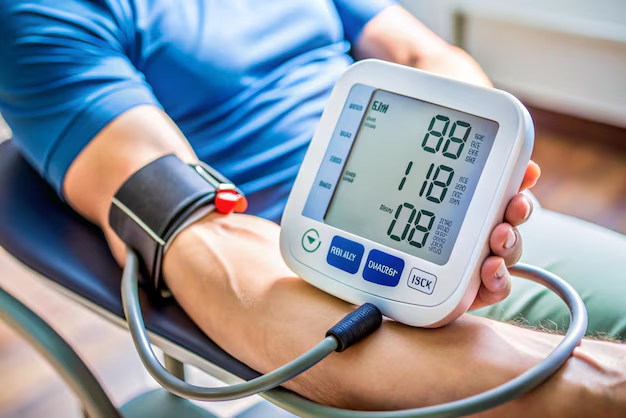Atherosclerosis is a silent but dangerous condition that occurs when plaque builds up in the arteries, restricting blood flow. Over time, this can lead to heart disease, stroke, or even death. The good news is that making certain lifestyle changes can significantly reduce your risk of developing atherosclerosis. Below are the top 10 lifestyle adjustments to help prevent this artery-blocking condition.

1. Adopt a Heart-Healthy Diet
Your diet plays a key role in managing cholesterol levels and preventing plaque buildup in your arteries. A heart-healthy diet includes:
- Fruits and vegetables: Rich in fiber, vitamins, and antioxidants.
- Whole grains: Oats, barley, and brown rice help lower cholesterol.
- Healthy fats: Opt for unsaturated fats from nuts, seeds, and olive oil.
- Lean proteins: Choose fish, poultry, and legumes over red meats.
Avoid trans fats and saturated fats, as they contribute to cholesterol buildup, which accelerates atherosclerosis.
2. Exercise Regularly
Regular physical activity strengthens your heart and improves circulation, reducing the risk of atherosclerosis. Aim for:
- 150 minutes of moderate exercise weekly, such as walking or cycling.
- Strength training twice a week for muscle health.
- Daily movement: Simple activities like taking the stairs or walking more can make a big difference.
3. Maintain a Healthy Weight
Obesity is a significant risk factor for atherosclerosis because it increases your cholesterol levels, blood pressure, and inflammation. Maintaining a healthy weight can:
- Lower bad cholesterol (LDL).
- Improve good cholesterol (HDL).
- Reduce the risk of hypertension and diabetes, both of which accelerate artery damage.
4. Quit Smoking
Smoking damages the blood vessels, promotes plaque formation, and increases the risk of blood clots. Quitting smoking benefits your arteries immediately and reduces your risk of heart disease. Within one year of quitting, your risk of coronary heart disease is cut in half.
5. Manage Stress
Chronic stress contributes to high blood pressure and inflammation, both of which accelerate atherosclerosis. Simple techniques to manage stress include:
- Meditation and mindfulness: These help lower stress hormones.
- Deep breathing exercises: Calm your mind and improve heart health.
- Regular physical activity: Exercise is a natural stress reliever.
6. Limit Alcohol Consumption
Excessive alcohol intake can increase blood pressure, triglycerides, and cholesterol, all of which contribute to atherosclerosis. Limit your alcohol consumption to:
- Men: No more than two drinks per day.
- Women: No more than one drink per day.
Moderation is key to reducing the impact on your cardiovascular system.

7. Control Blood Pressure
High blood pressure damages the artery walls, making them more prone to plaque buildup. To manage your blood pressure:
- Limit salt intake: Too much sodium increases blood pressure.
- Exercise regularly: It helps keep blood pressure in check.
- Take prescribed medications: If necessary, to control hypertension.
Regular monitoring can help you stay on top of your blood pressure and adjust your lifestyle accordingly.
8. Monitor Cholesterol Levels
High levels of LDL cholesterol contribute to plaque formation. To keep your cholesterol levels in check:
- Get regular blood tests: Monitor your cholesterol levels.
- Eat a heart-healthy diet: Focus on foods that lower LDL and increase HDL.
- Take medications if prescribed: Statins and other cholesterol-lowering drugs may be necessary for some individuals.
9. Stay Hydrated
Drinking enough water helps maintain good circulation and flushes out toxins that can damage arteries. Proper hydration:
- Keeps your blood thin and flowing smoothly.
- Reduces strain on the heart and arteries.
- Helps control blood pressure.
Aim for at least 8 glasses of water a day to support heart health.
10. Regular Medical Checkups
Preventive care is crucial for catching early signs of atherosclerosis and managing risk factors. Regular checkups can include:
- Blood pressure measurements.
- Cholesterol screenings.
- Blood sugar monitoring.
Your doctor may recommend additional tests, such as a coronary artery calcium (CAC) score, to assess the health of your arteries.
Interactive Element: Assess Your Atherosclerosis Risk
Here’s a quick self-assessment to evaluate your risk of atherosclerosis. Answer “Yes” or “No” to the following:
- Do you have high blood pressure?
- Are your cholesterol levels elevated?
- Do you smoke?
- Are you overweight or obese?
- Do you exercise less than 150 minutes a week?
- Do you have a family history of heart disease?
If you answered “Yes” to any of these questions, consider making some lifestyle changes or consulting your doctor for advice on how to lower your risk.
Conclusion
Preventing atherosclerosis starts with making informed choices about your lifestyle. Small, consistent changes, such as adopting a heart-healthy diet, exercising regularly, and quitting smoking, can go a long way in keeping your arteries healthy and reducing your risk of heart disease and stroke. Take action today to protect your heart and improve your long-term health.
By following these 10 lifestyle changes, you can prevent atherosclerosis and protect your cardiovascular health for years to come.
Related post for Lifestyle & Exercise>>>
References:
- Libby P. Inflammation in atherosclerosis. Nature. 2002;420(6917):868-874. doi:10.1038/nature01323.
- Roth GA, Johnson C, Abajobir A, et al. Global, Regional, and National Burden of Cardiovascular Diseases. JAMA Cardiol. 2017;2(4):375-381. doi:10.1001/jamacardio.2017.0079.
- Lusis AJ. Atherosclerosis. Nature. 2000;407(6801):233-241. doi:10.1038/35025203.
- Roger VL, Go AS, Lloyd-Jones DM, et al. Heart Disease and Stroke Statistics–2012 Update. Circulation. 2012;125(1). doi:10.1161/CIR.0b013e31823ac046.
- Blankenhorn DH, Azen SP, Kramsch DM, et al. Coronary Artery Disease. JAMA. 1994;271(10):835-842. doi:10.1001/jama.1994.03510340057035.
By following these 10 lifestyle changes, you can prevent atherosclerosis and protect your cardiovascular health for years to come.




